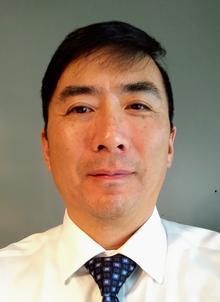
His own research, he says, has been highly varied, publishing on topics as diverse as robotics to virtual reality to the intersection between psychology and computers.
He has tried to bring that same sense of curiosity to the rest of his life – whether that is in raising his nine children, coaching thousands of children in soccer, or in his involvement in music where he has released five albums, two of which won Best Rock Album at the Canadian Gospel Music Association awards in 2000 and 2005. In 2000, he was involved as president and CEO of a startup, although he decided not to stay on as he was heavily involved in teaching and raising a large family.
Because he came to the university as a Master’s student and was one of the last PhD graduates to be directly hired to stay on at the University, for Wang, it “seems a bit surreal” to think he’s been at Waterloo for so long. “When I started, I had graduate students who were only a couple of years younger than me.”
As he reflects on changes over his time at Waterloo, he notes that not only has the university grown substantially in size, but in recent years, he has observed a significant change in students, particularly over the last five or six years. “We’re now seeing the i-generation,” he says, “where students are reliant on technology.” While Wang sees benefits to technology, he believes not teaching students fundamental skills is crippling the ability of students to succeed. He says, “I love mentoring graduate students and teaching them to be curious and explore, and to be less afraid of failure.”
Read the full article on the Daily Bulletin.